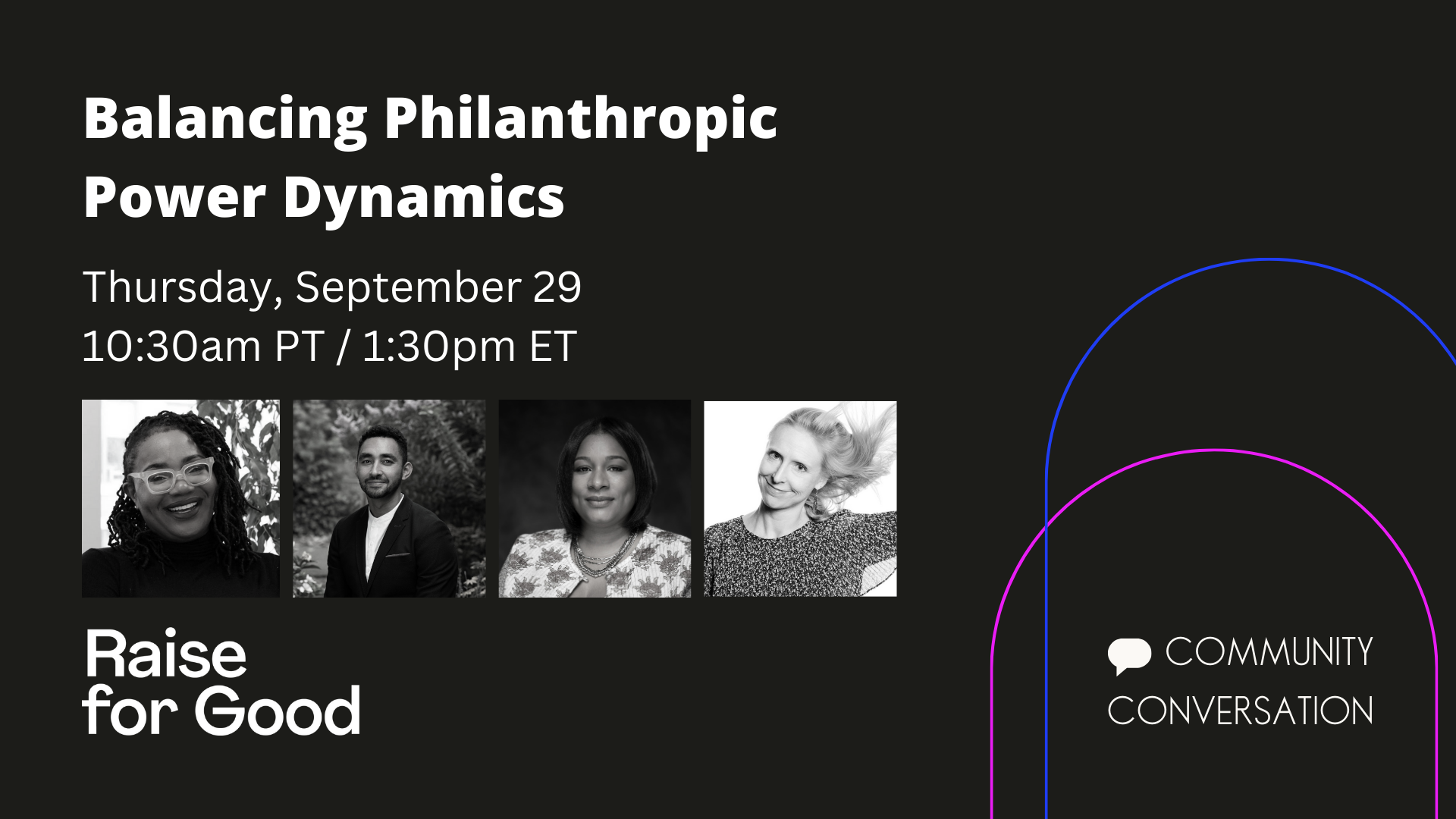
Most grant-makers want to solve long-standing inequities in education, health, economic mobility, and other social issues, yet success involves changing systems, policies, and attitudes. How can grant-makers use their power and empower others to create lasting change?
Our amazing speakers -
Moderator: Nwando Obele, Chief Learning and Impact Officer, The Schultz Family Foundation
Tony Emerson-Zetina, Senior Program Officer, Education & Economic Mobility, Crankstart Foundation
Elisha Gilliam, Managing Director, Scalable Solutions, YearUp
Olivia Khalili, VP, Global Social Impact & ESG, PagerDuty
Event Recap
Our panelists discussed how philanthropists can best design, seed, and enact transformational change in the communities they serve. We explored how grant-makers can solve long-standing inequities by building trust and sharing power with their community and grantee partners. Pieces of panelist wisdom that we are still reflecting on today:
Trust is the bedrock of effective philanthropy- "You can only move at the speed of trust"
Codifying trust-based principles and enacting systems-change is not a destination, it's a forever journey
Systems-change requires a collective mindset shift
Our intersectional identities impact the work we do and how we show up for our partners and communities
Representation matters - “You can’t be what you can’t see"
Communities are the experts in their lived experiences and they have the authority to define what impact looks like in their work

